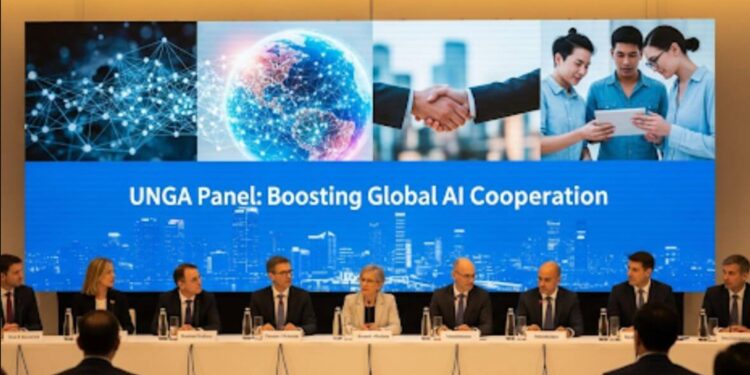In a landmark move aimed at shaping the future of artificial intelligence, the United Nations General Assembly (UNGA) has established two new institutional mechanisms designed to promote international cooperation on AI governance. The initiatives, hailed as a “pathbreaking milestone” by UN Secretary-General António Guterres, reflect a growing global consensus on the need to balance the immense potential of AI with the critical risks it poses.
The first new mechanism is the United Nations Independent International Scientific Panel on AI. Modeled on the Intergovernmental Panel on Climate Change, this panel will serve as a crucial bridge between cutting-edge AI research and global policymaking. It will provide rigorous, evidence-based scientific assessments to help the international community anticipate emerging challenges and make informed decisions on how to govern this transformative technology. The panel will be composed of global experts from diverse disciplines, with an open nomination process expected to launch shortly.
Complementing the scientific panel is the Global Dialogue on AI Governance. This new forum is designed to be an inclusive, multi-stakeholder platform for member states, the private sector, academia, and civil society to discuss key AI challenges and governance issues. The dialogue will act as a central hub for sharing best practices, fostering collaboration, and working toward a common framework for AI that respects human rights, promotes transparency, and ensures ethical use. The inaugural sessions are scheduled for July 2026 in Geneva and July 2027 in New York.
The establishment of these initiatives builds upon the UN’s broader Global Digital Compact, which was adopted in September 2024. The Compact provides a roadmap for enhancing global digital collaboration and bridging the digital divide, a problem exacerbated by the rapid advancement of AI. The new mechanisms will work to ensure that all nations, particularly developing countries, can effectively and equitably participate in the AI revolution and harness its benefits for sustainable development.
This two-pronged approach signals the UN’s commitment to taking a leading role in a field that has, until now, largely been governed by a patchwork of national regulations and industry self-governance. By fostering shared knowledge and common understanding, the UN aims to create a more coordinated and unified global approach, ensuring that AI serves the common good of all humanity.
















